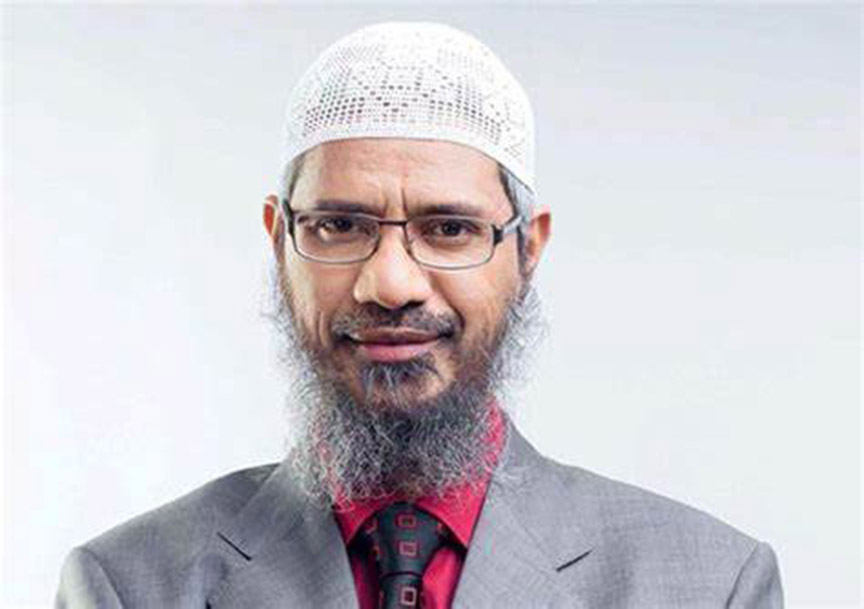
Background
Zakir Naik is a prominent Islamic public speaker in the Indian subcontinent, whose influence has been pivotal in promoting controversial discourses that pose a significant threat to the secular fabric and security of the region. Through his radicalizing lectures, he has particularly captivated youth, directing them toward violence under the guise of religious justification. Born in Mumbai, India, in 1965. Naik initially pursued a degree in medicine (MBBS) and leveraged his medical education to construct a narrative that intertwines logic and science with his theological claims, often employing these constructs to rationalize violence and articulate the victimization of Muslims in India.
Naik’s ascent to prominence began in the 1990s through his work with the Islamic Research Foundation (IRF), where he engaged in proselytizing activities, or dawah, that sought to assert the superiority of Islam over other faiths. By the early 2000s, his public speaking and video lectures had garnered widespread attention, yet they also sparked considerable controversy due to his provocative interpretations of Islamic doctrine. His teachings have often been accused of selectively interpreting religious tenets to endorse violence, effectively manipulating young adherents who may be susceptible to extremist ideologies.
Zakir Naik’s Teachings resulted into attacks in Neighbourhood
Zakir Naik’s influence has been implicated in several serious terrorist attacks, marking him as a significant threat to global security and humanity. Following the Dhaka terror attack at Cafe Holey Artisan in July 2016, which resulted in the deaths of 23 individuals. It was revealed that one of the bombers had been inspired by Naik’s extremist ideology disseminated through his YouTube channel. This incident underscored the perilous ramifications of his radical rhetoric.
Naik’s teachings have been linked to the radicalization of various individuals, including two youths from Kerala who subsequently joined the Islamic State. Their testimonies highlight a disturbing trend in which Naik’s extremist interpretations of Islam serve as a catalyst for violence and terrorism. Such affiliations not only endanger innocent lives but also undermine the fabric of society, fostering an environment of fear and mistrust.
The Easter bombings in Sri Lanka in April 2019 further exemplify the far-reaching consequences of Naik’s influence. Zahran Hashim, the leader of the National ThowheethJama’ath, publicly praised Naik, urging his followers to consider what actions they could take in his name. The attack, which claimed approximately 260 lives, serves as a stark reminder of the lethal potential of radical ideology and its ability to inspire heinous acts of violence.
Naik’s inflammatory speeches and extremist views advocate for ideologies that incite hatred and division. He has been quoted defending the actions of groups like Al-Qaeda and the Islamic State, perpetuating narratives that justify violence against perceived enemies of Islam. Such statements not only encourage radicalization but also pose an existential threat to social cohesion and global peace.
Moreover, his calls for draconian measures, such as the death penalty for homosexuality and the endorsement of violence against women, reflect a worldview that fundamentally devalues human rights and dignity. By promoting a hardline interpretation of Islam, Naik fosters an atmosphere of intolerance and aggression, undermining the principles of coexistence and mutual respect.
The ongoing refusal of Malaysia to extradite Naik despite international calls for accountability further complicates the global fight against terrorism. It illustrates the challenges posed by state protection of individuals whose ideologies directly threaten global security. As such, Zakir Naik’s influence represents not only a significant danger to individual lives but also to the broader principles of humanity, tolerance, and peace.
Recently, Pakistan has made headlines by extending a warm welcome to Zakir Naik, hosting him with a red-carpet reception during his visit to deliver a series of lectures. This act is emblematic of Pakistan’s tacit endorsement of individuals associated with radical ideologies and highlights the troubling relationship between state policies and the promotion of extremist narratives.
The reception of Naik by Pakistani authorities suggests a broader state-sanctioned approach to fostering radical ideologies under the guise of religious discourse. This welcoming gesture not only signals support for Naik’s divisive views but also reflects a potentially fabricated societal narrative that prioritizes religious loyalty over fundamental human rights and safety. It reinforces the notion that elements within the Pakistani state may actively promote figures who have been linked to radicalization and terrorism.
Furthermore, Naik’s presence in Pakistan can exacerbate existing tensions within the country and among neighboring regions. His teachings may inspire further radicalization, particularly among youth susceptible to extremist ideologies. By providing a platform for Naik, Pakistan risks perpetuating cycles of violence and undermining efforts toward stability and peace in a region already plagued by conflict.
This situation raises critical questions about the role of the Pakistani state in addressing the roots of terrorism and extremism. The decision to host Naik serves as a stark reminder of how state actions can contribute to a climate that fosters radical thought and legitimizes violence in the name of religion. In essence, this welcome not only reflects a fundamental misalignment with global counter-terrorism efforts but also illustrates the challenges of cultivating a more inclusive and peaceful society.
Naik’s role in promoting a version of Islam that justifies violence underlines a significant challenge to both social cohesion and national security in the subcontinent. His ability to intertwine religious discourse with ostensibly rational arguments has enabled him to cultivate a following among youth, potentially steering them toward extremist actions. Consequently, the implications of his influence extend beyond individual belief systems, posing a substantial risk to the broader stability of the region and undermining efforts to foster an inclusive, peaceful society.